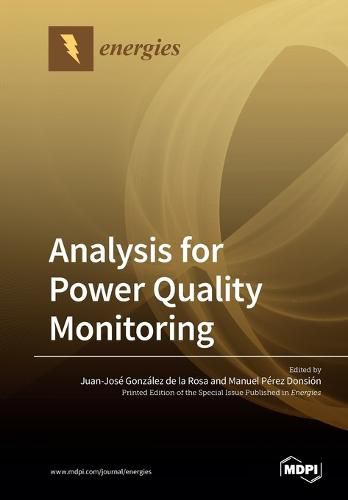Readings Newsletter
Become a Readings Member to make your shopping experience even easier.
Sign in or sign up for free!
You’re not far away from qualifying for FREE standard shipping within Australia
You’ve qualified for FREE standard shipping within Australia
The cart is loading…






This title is printed to order. This book may have been self-published. If so, we cannot guarantee the quality of the content. In the main most books will have gone through the editing process however some may not. We therefore suggest that you be aware of this before ordering this book. If in doubt check either the author or publisher’s details as we are unable to accept any returns unless they are faulty. Please contact us if you have any questions.
We are immersed in the so-called digital energy network, continuously introducing new technological advances for a better way of life. Numerous emerging words are in the spotlight, namely: Internet of Things (IoT), Big Data, Smart Cities, Smart Grid, Industry 4.0, etc. To achieve this formidable goal, systems should work more efficiently, and this fact inevitably leads to power quality (PQ) assurance. Apart from its economic losses, a bad PQ implies serious risks for machines, and consequently for people. Many researchers are endeavoring to develop new analysis techniques, instruments, measurement methods, and new indices and norms that match and fulfil the requirements regarding the current operation of the electrical network. This book offers a compilation of the some recent advances in this field. The chapters range from computing issues to technological implementations, going through event detection strategies and new indices and measurement methods that contribute significantly to the advancement of PQ analysis. Experiments have been developed within the frames of research units and projects, and deal with real data from industry and public buildings. Human beings have an unavoidable commitment with sustainability, which implies adapting PQ monitoring techniques to our dynamic world, defining a digital and smart concept of quality for electricity.
$9.00 standard shipping within Australia
FREE standard shipping within Australia for orders over $100.00
Express & International shipping calculated at checkout
This title is printed to order. This book may have been self-published. If so, we cannot guarantee the quality of the content. In the main most books will have gone through the editing process however some may not. We therefore suggest that you be aware of this before ordering this book. If in doubt check either the author or publisher’s details as we are unable to accept any returns unless they are faulty. Please contact us if you have any questions.
We are immersed in the so-called digital energy network, continuously introducing new technological advances for a better way of life. Numerous emerging words are in the spotlight, namely: Internet of Things (IoT), Big Data, Smart Cities, Smart Grid, Industry 4.0, etc. To achieve this formidable goal, systems should work more efficiently, and this fact inevitably leads to power quality (PQ) assurance. Apart from its economic losses, a bad PQ implies serious risks for machines, and consequently for people. Many researchers are endeavoring to develop new analysis techniques, instruments, measurement methods, and new indices and norms that match and fulfil the requirements regarding the current operation of the electrical network. This book offers a compilation of the some recent advances in this field. The chapters range from computing issues to technological implementations, going through event detection strategies and new indices and measurement methods that contribute significantly to the advancement of PQ analysis. Experiments have been developed within the frames of research units and projects, and deal with real data from industry and public buildings. Human beings have an unavoidable commitment with sustainability, which implies adapting PQ monitoring techniques to our dynamic world, defining a digital and smart concept of quality for electricity.